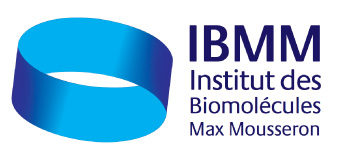Smart lipid nanoparticles based on molecular tweezers for synergistic cancer treatment
Séminaire Chimie ED459
Prof. Jeanne
Le Jeudi 06 Décembre 2018 à 14h
ENSCM, Amphithéâtre Godechot (campus Balard, 240 av. Émile-Jeanbrau)
Date de début : 2018-12-06 14:00:00
Date de fin : 2018-12-06 15:30:00
Lieu : ENSCM amphi Godechot (campus Balard, 240 av E. Jeanbrau)
Intervenant : Prof. Jeanne
Gene Delivery Laboratory, Faculty of Pharmacy, University of Montréal, Canada
Although several products have reached the market, cancer nanotherapeutics are faced with crucial delivery issues. Nanomedicines should be stable upon fabrication and administration, especially in the blood circulation, but have to release their payload within the cancer cells. Stimulus-responsive systems, also called smart systems, exhibit such a dynamic behaviour. This was achieved by the design and synthesis of a series of switchable lipids, able to change conformation upon protonation at endosomal pH values, leading to the disruption of the lipid bilayer and thus to the fast release of the nucleic acids into the cytosol. This system has shown its ability to delivery drugs and genes in vitro and in vivo, with similar efficiency than commercial transfection agents and lower toxicity. Among other applications, cancer chemoresistance has been tackled through surviving downregulation. Indeed, oncogene surviving is upregulated in many cancers and results in apoptosis inhibition, cell mitosis stimulation and DNA reparation. Therefore, survivin silencing through small-interfering RNA (siRNA) technology has emerged as a powerful approach in cancer therapy to overcome chemoresistance. In our study, we used switchable liposomes to deliver survivin-targeted siRNA in different cancer cell lines and we further evaluated its synergistic impact with anticancer drugs on a retinoblastoma cancer model.
Biosketch: Jeanne
Contact local IBMM : Dr. Sébastien

